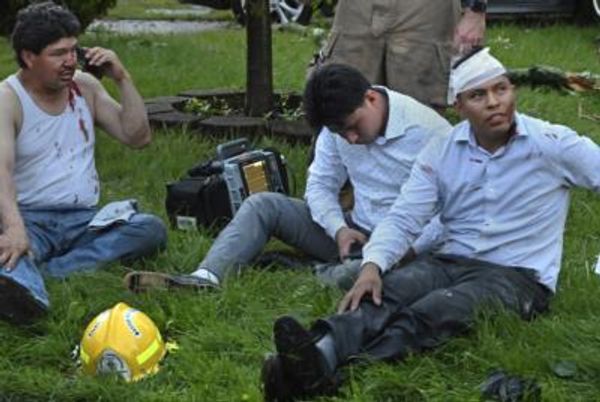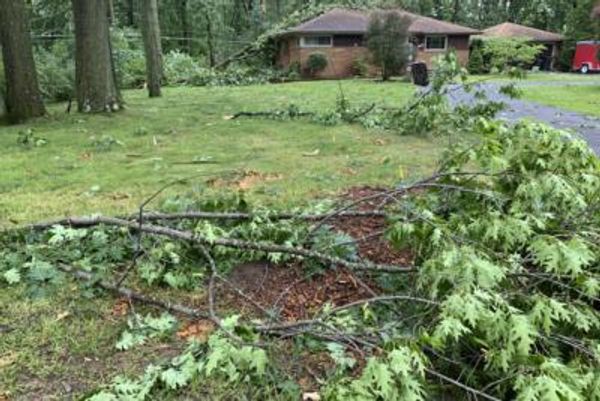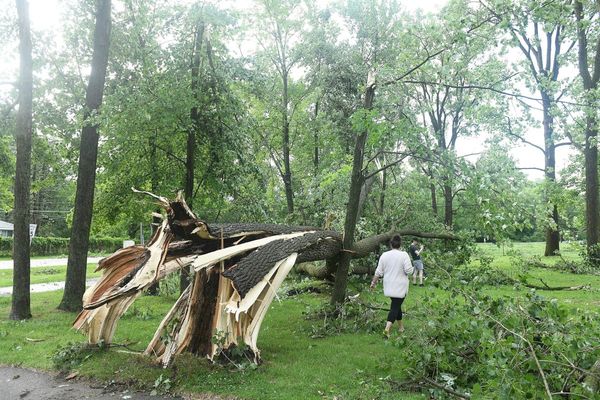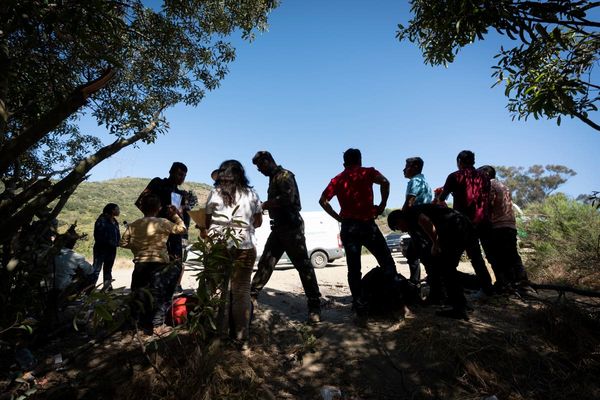
She transformed her life through journalism. But as a woman, she must go that extra mile to prove herself worthy.
Bhagyasri Mishra from Odisha’s Rayagada, the town that forms the headquarters of the tribal district of the same name, started young as a feminist. “My brother would get a full egg while my sister and I would get half each,” she recalls. “I would ask my mother why, only to be told that it was because he was a boy. Then she would generously add ‘I’ll never discriminate between my daughters’!”
Bhagyasri’s immediate thought would be: “Aren’t we also human like boys?"
This spirit of questioning made Bhagyasri’s father stop her from going to tuition class before the crucial class 10 board exams. “He was a policeman, and feared that I was so bold that I might run away with some boy,” she recounts, adding that she managed to clear the exams thanks to her sister’s tutoring skills.
Studies weren't quite Bhagyasri's forte; she was more interested in music. But she wasn't allowed the luxury of choice: her father would deprive her of meals if she didn't study. His behaviour, especially towards her mother, was the main reason Bhagyasri decided to become a journalist. (The other was her desire to help others.) “I wanted to find a way to oppose him. Somehow I believed that once I became a journalist, he would change his conduct,” she says.
That did happen.
As a journalist, Bhagyasri used her access to the district authorities to get them to release his retirement funds to her mother. Conscious of her clout, the man who had been used to having his own way at home, changed his ways to some extent.
However, to achieve her goal, the teenager had to steal away from home with her sister to enroll for the MA journalism course at Behrampur University, 200 km away, because there was no way her father would have allowed her to study journalism. She paid the fees with the savings she had managed while working as a teacher after her graduation; her sister also pitched in. Even during graduation, it was her mother and grandmother who paid the fees, as her father believed that it would become difficult to find her a husband if she was educated beyond school.
In Behrampur, Bhagyasri was the only girl in her MA batch from Rayagada, and determined to prove herself, she topped the group.
Then came the plunge into the world of small town media. Her first job was with a new publication. The editor came to her college hunting for new recruits; her principal recommended Bhagyasri and another boy. The job turned out to be a learning experience, but with no pay. “We were told we would get our salary once we got our appointment letters; those never came,” she says, “nor did the Scooty we were promised.’’ Short of cash, Bhagyasri lived inside the office premises. The proprietor would give her two meals and lock her up at night, “for her own safety”, of course.
After one year, Bhagyasri returned home. “For two years I didn't do journalism; I taught instead.” Then her luck turned and she got a job with an Odia daily as correspondent in charge of Rayagada district, with its 11 blocks and 2,673 villages. As is common in districts, she was also in charge of getting advertisements.
As the only woman journalist in the district, Bhagyasri would initially feel left out of the circle comprising male politicians, cops, bureaucrats and male reporters. But she loved her job and also the new status it gave her in her family. “When asked what his daughter did, my father would boast ‘she’s in charge of the district’,’’ she laughs.
But the bubble burst a few months back when a male reporter was hired and given the responsibility she had borne for four years. Shocked, Bhagyasri called up her editor, demanding an explanation. “Where did I go wrong,” she asked him, but she got the same answer her mother had given her years before: “You're a girl.” She was told to restrict her coverage to Rayagada town.
The sudden demotion drove her to suicidal thoughts. “Is there no talent in me?'' she began to wonder.
But quitting was not an option for the 30-year-old who had struggled so hard to become a journalist. Instead, she decided to try harder to prove herself, to do special stories apart from routine spot news, even if that meant working late hours. However, her gender proved to be a handicap.
Keen to bring to light the condition of a decrepit 100-year-old bridge that provides a vital traffic link, Bhagyasri tried to get information on its history and what the administration planned to do about it. Repeated visits to the department however, yielded only brush-offs. Her office won’t carry the story without the official data, and RTI applications take a long time.
“The male reporters would have got this data easily; they just chummy up to the PRO and other officers, socialise with them in the evenings. I can’t,” she points out.
To find ways around this handicap, Bhagyasri began to find different angles for stories.
The increased frequency of petty thefts in Rayagada made headlines when a local journalist’s mother became a victim of chain snatching. Under pressure, the police traced the culprit. When they called the media to announce their success, Bhagyasri found herself unable to get anywhere close to them through the wall of male reporters surrounding them. It struck her then that instead of simply reporting this success, she could find out whether there was any truth in the police’s claims of being too short-staffed to catch every criminal. But when she called the officer concerned, she heard the familiar: “Saheb’s out.’’ The story could be outdated by the time information is received.
At a low point in her fledgling career, Bhagyasri was persuaded by a colleague to attend the recently held conference of the Network of Women in Media (NWM) in Patna. The very first session, where participants introduced themselves, left her awestruck. “I’d never imagined there would be so many young women doing journalism in so many remote areas.”
The conference also left her wistful. “If only I’d had the means to go to the best university, like some of these young women seem to have had,” she says, breaking down during an interview with this reporter. “But I had to choose the one with the lowest fees, because I was determined to start working. I dreaded being a burden at home.”
But overall, the conference was very encouraging. “For the first time I saw that journalists can cooperate with each other. In Rayagada, if I’ve missed some news and ask another journalist ‘bhaiyaa, wahan kya hua?’, he gives me the information but also takes the opportunity to make a flirtatious remark.”
The three-day meeting made her realise that her struggle to be taken seriously wasn’t unique. By the time the conference was over, Bhagyasri had found new colleagues hailing from places as diverse as Srinagar and Chittoor. The only woman journalist in Rayagada had formed her own intimate circle.
Newslaundry is a reader-supported, ad-free, independent news outlet based out of New Delhi. Support their journalism, here.







